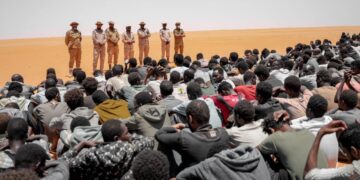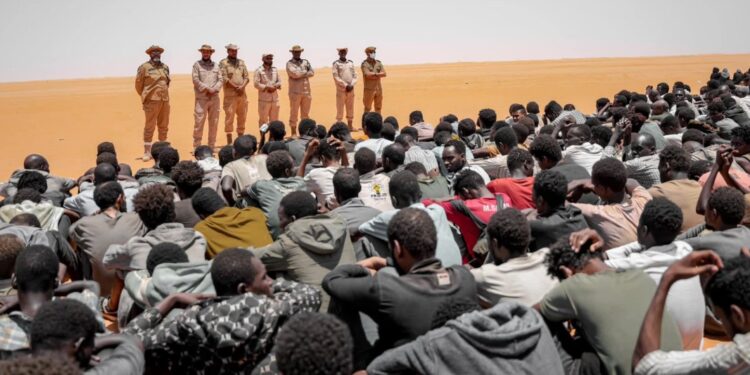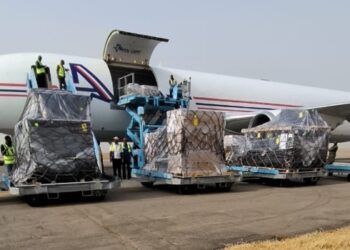By Enyichukwu Enemanna
Eastern Libyan authorities have returned hundreds of Sudanese back to their war-torn home country, officials have announced, in a crackdown on migrants fleeing conflict and economic challenges.
The migrants numbering over 700 are seeking to access Europe in search of greener pasture through the Mediterranean country.
They were recently detained in central and southeastern Libya, before their deportation through the land transportation system to Sudan on Friday, the Directorate for Combating Illegal Migration in eastern Libya said in a statement.
The statement said some of the deportees suffered from infectious diseases including hepatitis and AIDS. Others were deported because of either criminal convictions or “security reasons,” it added, without elaborating.
The deportation was part of an ongoing crackdown campaign on migrant trafficking in eastern Libya, which is controlled by forces of powerful military commander Khalifa Hifter.
Last week, the coast guard in eastern Libya said it intercepted a boat carrying 80 Europe-bound migrants off the eastern city of Tobruk.
The campaign includes raids on trafficking hubs across eastern and southern Libya. A raid earlier this month freed 104 Sudanese migrants, including women and children, who were held in a trafficking warehouse in the town of Ajdabiya, about 800 kilometres, east of the capital, Tripoli, according to town security authorities.
Libya has in recent years become a transit point for those fleeing wars and poverty in the Middle East and Africa, and seeking a better life in Europe.
Human traffickers have benefited from more than a decade of instability, smuggling migrants across Libya’s borders with six nations, including Chad, Niger, Sudan, Egypt, Algeria and Tunisia.
Thousands of Sudanese have fled their country, seeking refuge in Libya since the April 2023 war between the Sudanese military and the paramilitary group, Rapid Support Forces (RSF), broke out.
They are among the more than 240,000 Sudanese migrants who live in Libya, according to the UN’s International Organisation for Migration.



































